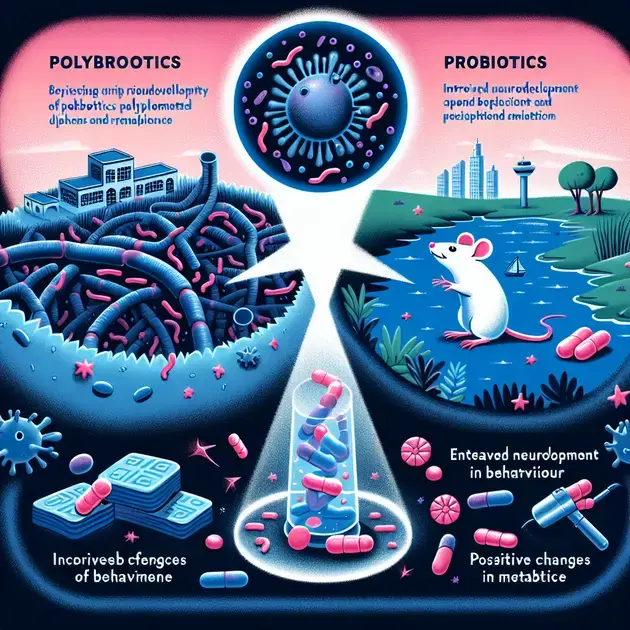Polybrominated diphenyl ethers (PBDEs): A Closer Look
Polybrominated diphenyl ethers (PBDEs) have become widely prevalent chemicals used as fire retardants in various products. These compounds can be found nearly everywhere, from household items to electronic devices. However, recent research suggests that these chemicals may have detrimental effects on neurodevelopment, behavior, and metabolism. A study conducted on mice demonstrated that probiotic supplementation can potentially mitigate these negative impacts.
Probiotics: Countering the Harmful Effects of PBDEs
The study, although conducted on mice, sheds light on the potential benefits of probiotics in counteracting the harmful effects of PBDEs. Neurodevelopmental disorders, such as autism and attention deficit hyperactivity disorder (ADHD), have seen a drastic increase in recent years. While the exact causes of these disorders remain unknown, environmental factors, including exposure to chemicals like PBDEs, are believed to play a role.
PBDEs have been shown to disrupt brain development and function in both animal and human studies. These chemicals interfere with neurotransmitter systems, impair cognitive function, and increase the risk of neurodevelopmental disorders. Additionally, PBDE exposure has been linked to adverse behavioral outcomes, including anxiety and hyperactivity.
However, the study on mice revealed promising results regarding the potential benefits of probiotics in mitigating the negative effects of PBDEs. Probiotics, live microorganisms that provide health benefits when consumed, have gained popularity for their positive effects on gut health, digestion, and immune system function. This study explored whether probiotic supplementation could protect against the neurotoxicity induced by PBDE exposure.
The Study and its Findings
The researchers exposed pregnant mice to PBDEs during gestation and lactation periods. One group of mice received a probiotic supplement, while the other did not. The results showed that the mice supplemented with probiotics experienced improved neurodevelopment, exhibited fewer behavioral alterations, and maintained normal metabolic function compared to the non-supplemented group. The probiotics seemed to offer a protective effect against PBDE-induced neurotoxicity.
Although the exact mechanisms underlying this protective effect are yet to be fully understood, previous studies have shown that probiotics can influence the gut-brain axis. The gut-brain axis is a bidirectional communication system between the gut and the brain, which plays a crucial role in regulating various physiological and cognitive processes. Probiotics may modulate this axis, reducing inflammation, oxidative stress, and improving neurotransmitter balance.
The Path Forward
The findings from this mouse study suggest that probiotics hold promise in mitigating the negative effects of PBDEs on neurodevelopment, behavior, and metabolism. However, further research is needed to confirm these effects in humans and determine optimal probiotic strains, dosages, and treatment durations.
In conclusion, PBDEs are pervasive fire-retardant chemicals that have been linked to detrimental effects on neurodevelopment, behavior, and metabolism. The mouse study discussed here indicates that probiotic supplementation may offer protective effects against the neurotoxicity induced by PBDE exposure. Although more research is needed, these findings highlight the potential benefits of probiotics in mitigating the negative impacts of PBDEs. Further studies are necessary to fully understand the underlying mechanisms and translate these findings into potential therapeutic interventions for humans.
